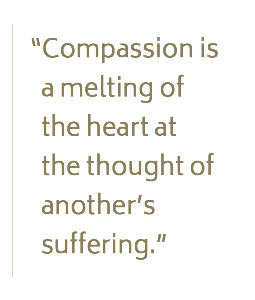I believe that every relationship has its own life, whether we are aware of it or not. The question is what is that relationship telling you or perhaps teaching you? Who are you in the presence of the other? What ingredients make relationships healthy and life producing? How am I relating to others, the world I live in, and most importantly, to myself? How do I relate to my past, present and future? To mortality and life? Relationships are constantly shaping us, like powerful rivers creating continual movement with vigorous undercurrents. Every relationship has its own texture, flavor, fragrance and taste. Relationships are always present, even from a distance.
There are certain things that I consider essential for meaningful therapeutic relationships. I believe relational experience between client and therapist is well described by the American psychologist Carl Rogers when he states: “It is only by providing the genuine reality which is in me, that the other person can successfully seek for the reality in him.” This reality is experienced and attained in the community of graceful acceptance, where compassion and empathy light the path. A moral teacher once stated: “Compassion is a melting of the heart at the thought of another’s suffering.” Most of us know what this feels like. Empathy on the other hand can be described as: ‘The ability to enter into affective resonance with the other’s feelings and to become cognitively aware of his situation. Empathy alerts us in particular to the nature and intensity of the sufferings experienced by the other” (M. Ricard, Altruism).
The therapeutic relationship is about moral responsibility. William Doherty describes six moral traits therapists need to cultivate, these are care, courage, prudence, willingness to use moral language, respect for interpersonal commitments and responsibilities and finally to respect client’s community commitments and responsibilities. I value these moral and ethical concepts and regularly reflect on them as I work with clients. It is important for a therapist to be willing to participate in moral dialogue about what is honest, right, fair and responsible and not to refrain from exploring moral challenges as they surface in the therapeutic relationship.
For me this is the very foundation for therapy no matter what theoretical foundation a therapist might otherwise embrace.

